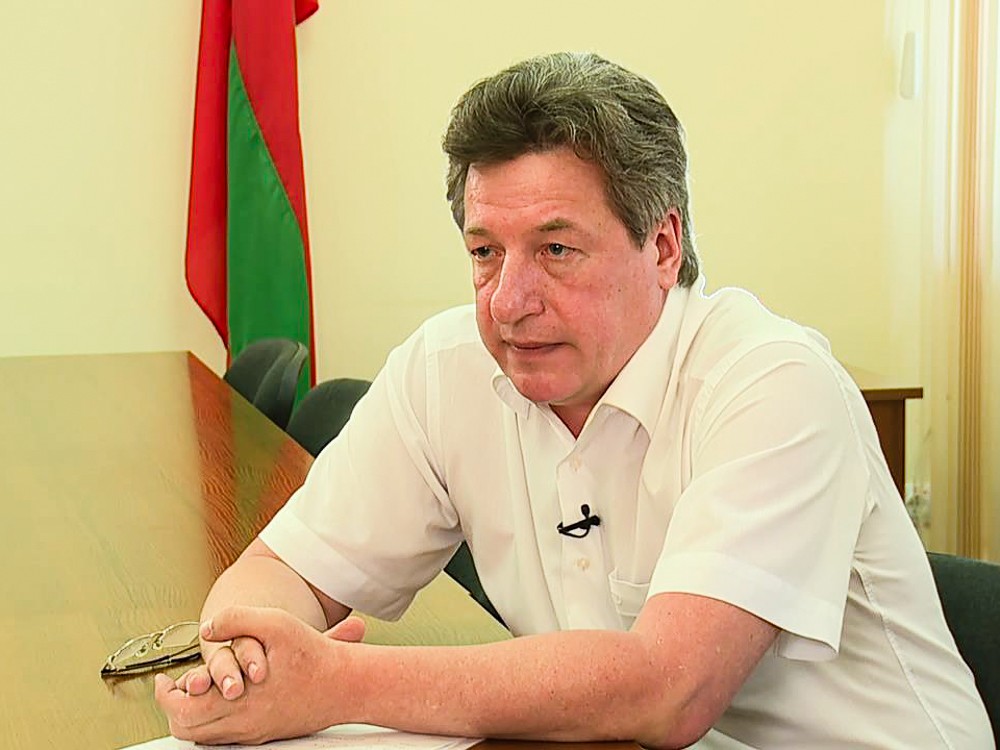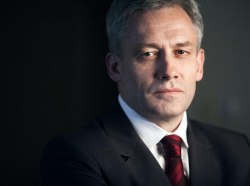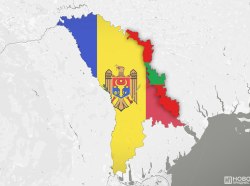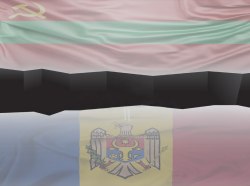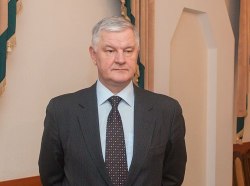Tiraspol, 14 June. /Novosti Pridnestrovya/. In May 2016 the president appointed Sergey Bobrov commissioner for the protection of entrepreneurs' rights under the President of the PMR. This institution has not existed in Pridnestrovie before. The business ombudsman said about the prospects of the new institution in an exclusive interview with Novosti Pridnestrovya.
Novosti Pridnestrovya: The position of commissioner for the protection of entrepreneurs' rights has been recently introduced in Pridnestrovie. This is a new institution for our republic. Is its establishment relevant?
Sergey Bobrov: The establishment of this institution is caused by objective factors. So many regulatory by-laws have been adopted throughout the country's history that their number has already reached a critical point. A person comes across lots of bans and restrictions when setting up in business. Very often a businessman may infringe something when he has not actually started his activities. On the other hand, the present crisis phenomena have further aggravated all this. As a result, the business community has requested the president to introduce this institution.
Novosti Pridnestrovya: What are the authorities of the business ombudsman? Are they sufficient to protect businesspersons' rights?
Sergey Bobrov: At the first, transitory stage the commissioner's activities are regulated by the president's decrees. Now we are studying Russia's experience and drafting a law expanding these authorities. In principle, there are enough authorities even today. The business ombudsman has the right to file requests to any public authorities when considering complaints and requests applied by business entities, attract expert groups, apply a reasoned opinion on illegal actions taken by officials to the president, government, ministries and agencies, and even submit proposals on bringing officials infringing entrepreneurs' lawful rights and interests to administrative and disciplinary account. The business ombudsman will be able to participate in arbitrary and criminal proceedings when certain categories of cases related to economic and business activities are heard.
Novosti Pridnestrovya: What are the main priorities of you work? How are you getting along with public authorities?
Sergey Bobrov: I just want to note that I work on the permanent basis; therefore, my relations with public authorities are quite constructive. Communicating with the business community, I collect information on the existing issues and problems to further resolve them. Contact is established, and constructive work is under way.
As for the basic areas of action, I'd like to note, first of all, the one related to applications filed by business entities. Another area I have prioritised is the necessity to consolidate the business community based on both industrial and territorial criteria. This is especially relevant for small and medium businesses. The interests of big businesses are already protected by the Union of Manufacturers, Agrarians and Entrepreneurs of Pridnestrovie and a number of other unions and associations. In other words, big business has managed to unite their efforts to resolve various issues. The consolidation of small and medium on an industrial criterion will also help to reveal the systemic problems which are typical for each individual industry and find a comprehensive solution to them.
The third area is that although I cannot submit draft laws on my own, I request any subject of legislative initiative to amend the current legislation by adopting new and abolishing old laws.
And the fourth area which I regard as promising is the promotion and protection of our businesspersons abroad. Having accumulated a good deal of practical experience in Russia, Ukraine and Moldova and establishing contacts with other countries today, we hope to represent the interests of our business entities abroad.
Novosti Pridnestrovya: Has the business community already applied to you? What are their major concerns?
Sergey Bobrov: Requests are regularly applied, and they are already being worked on. A special website to which every entrepreneur will be able apply his complaint on abuse of rights or proposal on the improvement of business environment is being developed to provide more efficient cooperation. We are about to solve the issue of regional offices which are to be open as branches of the PMR's Chamber of Commerce and Industry.
As for business problems, I want to note, first of all, unstable business environment caused by external factors and Pridnestrovie's unrecognised status.
The next question which worries the business community is the determination of a fair tax burden. The businessman is ready to pay taxes from what he has earned, from his profit. He won't be able to work if he incurs losses after paying all taxes.
Another issue which is often raised at meetings with businessmen is the protection of domestic market. This issue is very relevant as certain guarantees should be provided that goods can be sold in the domestic market. Any country pursues the policy of protecting domestic manufacturers and domestic market. In this connection one of the most important questions is to secure equal competitive opportunities for all business entity. This applies, first of all, to small businesses, which turn helpless to bigger business structures.
Novosti Pridnestrovya: There has been an ongoing debate as to which tax system is more optimal for our country. What do entrepreneurs think in this respect?
Sergey Bobrov: The entrepreneur stands for a fair tax burden, whichever form it may assume. The tax system should be transparent, so that the businessman can understand for what he pays this or that tax. As for the advantages of the classical tax system, it should be noted that trading with CIS and foreign countries the majority of which employ this tax system, it is more preferable, of course, to be on equal terms. The fact is, the classical tax system allows for fair export and import operations regulated by the value-added tax. But this system has a number of disadvantages as well. It requires more administrative resources. If today's turnover tax can be calculated by one specialist, the classical system requires specialists who monitor the value-added tax and specialists who calculate the profit that is levied. This requires a greater number of regulations determining what can be attributed to product cost and what cannot. Therefore, a balanced approach should be taken when making such a decision.
Novosti Pridnestrovya: How can you explain that? Are there any legislative, fiscal or administrative flaws which prevent business from developing? How to find the golden mean between providing support for domestic manufacturers and creating a competitive environment?
Sergey Bobrov: The adoption of the classical taxation system would level out to a certain degree the position of foreign and domestic manufacturers. The foreign manufacturer selling goods to Pridnestrovie is refunded VAT at an amount of 18−20%, depending on a country of consignment. In Pridnestrovie these goods are liable to an ordinary customs duty. This 5−10% duty cannot in any way cover the 18−20% the importer receives after exports are reclaimed. And initially these goods enjoy more preferences than those of the domestic manufacturer. Therefore, I say it one more time that the issue of taxation is very serious: it is necessary to find the golden medium, to avoid an excessive administrative burden and, at the same time, level out competitive opportunities for foreign and domestic goods.
Novosti Pridnestrovya: On of the most serious problem today is the situation in the domestic forex market. How does it affect import supplies and how do businessmen cope with it?
Sergey Bobrov: Of course, the lack of foreign currency hits everyone, but I'd like to view this problem from yet another angle. This is because any crisis, besides some negative implications, provides the opportunity for a certain renewal, refinement and gives an impetus to a new development. In other words, in the crisis society finds the inner reserves that you never think about when everything is good. As for today, in my view, the domestic manufacturer may benefit from the lack of foreign currency. There is a good opportunity to re-orient from commerce to manufacturing. It is understood that commerce is always simpler to a certain degree than manufacturing. Manufacturers work in a different way: they purchase raw materials, organise a manufacturing process, produce and sell goods, and at the same time the manufacturer creates the marginal product, thus securing the improvement of the people's well-being, their purchasing ability. Amid the lack of currency today, import difficulties, a number of retail outlets and commercial organisations have paid attention to the domestic manufacturer. The possibility of buying goods with roubles increases the demand for them. It is possible now to launch local manufacturing, especially food products. There are big garment, footwear and textile factories which are ready to offer very interesting and quality goods for roubles. Therefore, if we have currency, it is good, if we don't, we should think how to save on it and how to increase currency earnings.
Novosti Pridnestrovya: And in conclusion, what is your vision of the potential of Pridnestrovian business? Which sectors are more preferable to develop? Are there any points of increase?
Sergey Bobrov: The potential of Pridnestrovian business is, first of all, our remarkable people. This is Pridnestrovie's capital asset. Everything is based on it, including business. If looking at the situation as a whole, the most promising for our region, in my opinion, is agriculture with full processing cycle, which has lately become the point of interest. I think that tourism is also very promising in the event interesting infrastructure is created. I want to cite one example: I have studied Moldova's tourist statistics over the last year. Nearly a million tourists visited the country. Roughly speaking, if each of them left 100 euros, this made a total of 100 million euros which replenished the national budget thanks to a warm sun, picturesque landscapes and historical monuments. Pridnestrovie can offer all this as well.
Novosti Pridnestrovya: Thank you for this sincere interview. May success attend you in the new position!
Interviewed by Andrey Belous.

